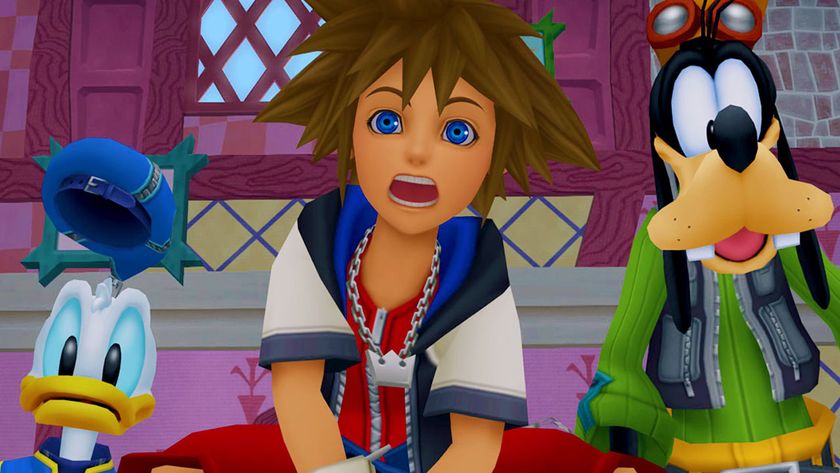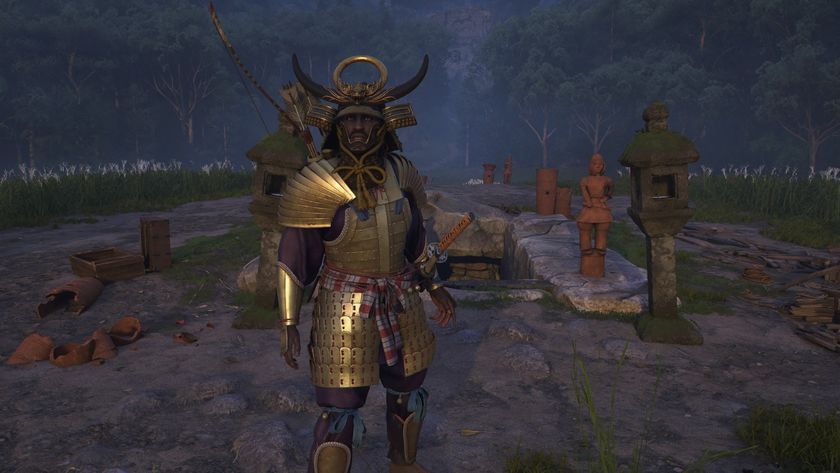Fable 2 - interview
Peter Molyneux on keeping everyone happy
We recently travelled down to Lionhead's Guildford HQ to see how the epic sequel to Fable is shaping up. You can check out our impressionshere, and read on to see what an enthusiastic-as-ever Peter Molyneux had to say...
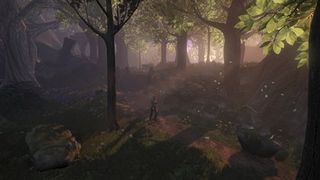
The scale of Fable 2's world is huge compared to the first game. We're sick of mentioning it, but the first thing that came to mind was the jump to GTA IV's Liberty City...
Molyneux: The first thing we did was to mock up the whole world because it was so ambitious, and there are three levels to that ambition. In a way it is a little bit like GTA IV in that they just say "Hey, here's your city, we're not going to point out there's a special thing here and a special thing there", and we're doing very much the same thing with our entire world.
Every region that we've got has got this idea of having this flow-through, which is that breadcrumb trail that you saw, the story that's there. And I love that feeling, as an RPG gamer, that I can find that little secret that no one else has found.
To do that, we've had to plan it really, really carefully. The first thing we did is we built the whole world on paper, because there's so much interaction going on there. We had to have this piece of technology which is called layers - every region's got hundreds of different layers in them.
That slums region that we went into... you do exactly what the guard wants, then one whole layer will be turned on, which will lead to a whole stream of stuff going on, like the region getting prosperous, and it'll unlock a whole load of different quests.
And then the other layer is the evil side and it'll be more evil and unlock an assassination job. All of this had to be so carefully planned out. We really wanted to nail the idea that for every choice there is a consequence, that you could do something small at the start of the game that would make a big difference.
Sign up to the 12DOVE Newsletter
Weekly digests, tales from the communities you love, and more
So that small thing at the start of the game leads you to have the ability to become an assassin within the world, and you can go around and take an assassination job and be paid as an assassin.
But that's only unlocked if you do this little thing at the start, which I find absolutely fascinating.
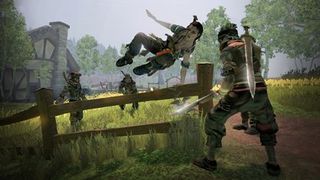
It seems there's a lot more sandbox gameplay in comparison to Fable...
Molyneux: There's a hell of a lot more sandbox and a hell of a lot more story. In Fable we didn't really spend enough time on the story. Every single building you saw in that demo, even the dungeon, is buyable. But that's completely useless without a really amazing story.
If we took the Lake... [Molyneux starts drawing a map on a piece of paper]. So the gypsy camp's down here, and in the middle there's a huge lake, and in the middle of that there's an island with a tomb on it. Nearby there's what's called Thag's Camp, and there's a whole storyline going on there. Next to that you've got a demon door, a this little traders section...
Now, if you're following the story then you'll go from A to B, you'll never see any of this stuff around the lake. But what I'm hoping is people are just going to meander around and see all of the other content.
Underneath this map is a whole network of cave systems. So it's really big and I really think there's the potential for hundreds and hundreds of hours of gameplay. But, with the story, we wanted it to be that clear, understandable story that everyone would finish.
You seem to be trying to cut a fine balance between appealing to casual gamers and hardcore RPGers?
Molyneux: Here's the thing - RPGs are one of the most complex game types there are. But for me, the idea of being who I want to be and my character being different to yours I think is one of the coolest genres of game. I think we should take that challenge of having casual people, who have never played games before, mixed with core people - why shouldn't we have a game like this where both those types of people can play together?
I think if you look back at really, really successful games, a lot of those games are where the core players really are satisfied - GTA IV, you know, core gamers are satisfied. Other people just love playing around in that world, and I'd love Fable to be one of those games as well.
You've said how important story is to the game, and you've spoken previously about how you're thinking about how to spark emotion in players - how has that progressed?
Molyneux: It's gone really well. We want to pull at your heart strings. Part of the drama is making you feel engaged and making you feel emotional. The other side to drama is a nucleus of humour, and I hope you're going to laugh a lot, and some of the things you'll laugh at are what you do in the story.
On top of that if you do get married and you do have children, they are involved in the drama of the story. And you've got your dog - everyone who has played it so far has fallen in love with their dog, and they really hate it when the dog gets hurt.
We had this unbelievably tough-looking biker bloke come in who was built like a brick shit house, and who was almost in tears at one point in the story when his dog got hurt.
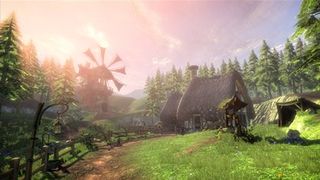
Is there a straight line in the narrative, an A to B?
Molyneux: Absolutely. If you follow that bread crumb trail to the letter, you'll go from the start of the story to the end of the story. The story stays kind of the same, and that's very important. The world and the simulation is different, the world's dynamic and that changes around you and what you look like changes, but if I was talking about a game with you and the story was different, we'd lose something.
It's very important that I can say to you, "Hey, what did you do when you got to X?" and we got one more feature, one huge feature, that we haven't unveiled yet, which will make that ten times more important.
In an industry dominated by DS, Wii and casual games, why is it do you think that a game like Fable or GTA IV can turn up and break all the sales records?
Molyneux: There's a couple of things. One is that this industry has overly focused on making triple-A games for us gamers - which is fantastic for gamers - but games have been, for a lot of people, inaccessible. And the Wii has made them accessible.
As for GTA IV, I find it really fascinating. The core storyline is tough, there's a lot of replaying the missions over and over again, but then you give it to someone who plays it and is into casual games, they just drive around and they're completely happy. I think that's why that fascinates people. People love being caught up in the drama of things, but also they love the accessibility.
May 13, 2008
